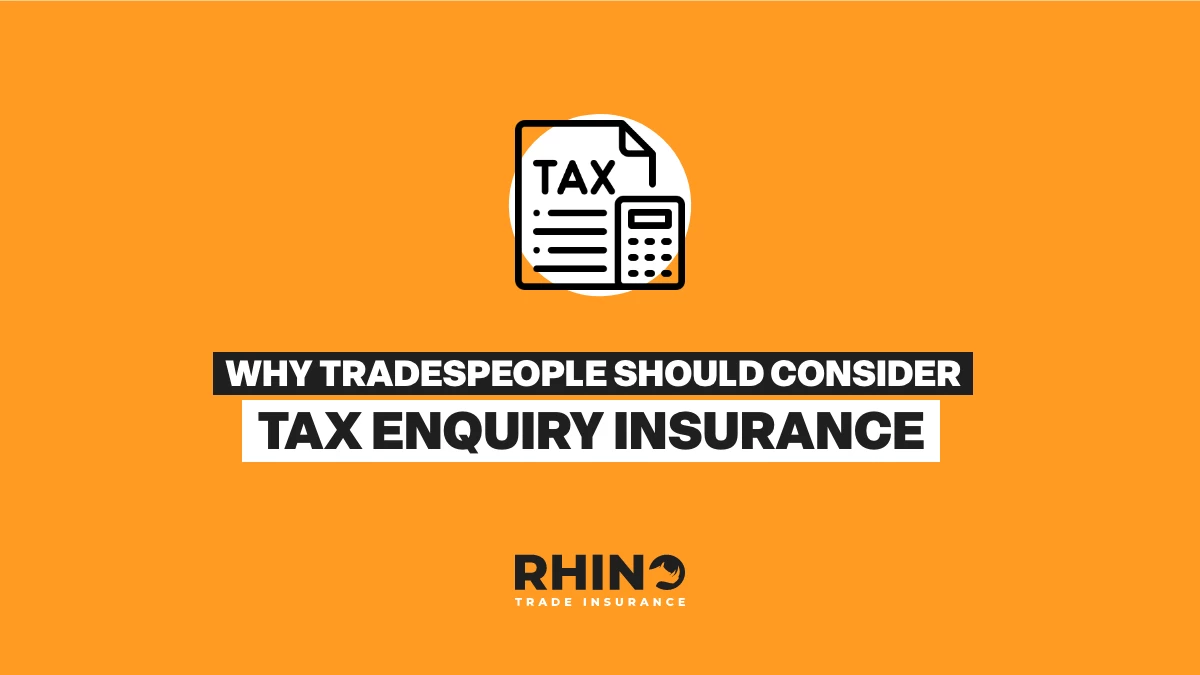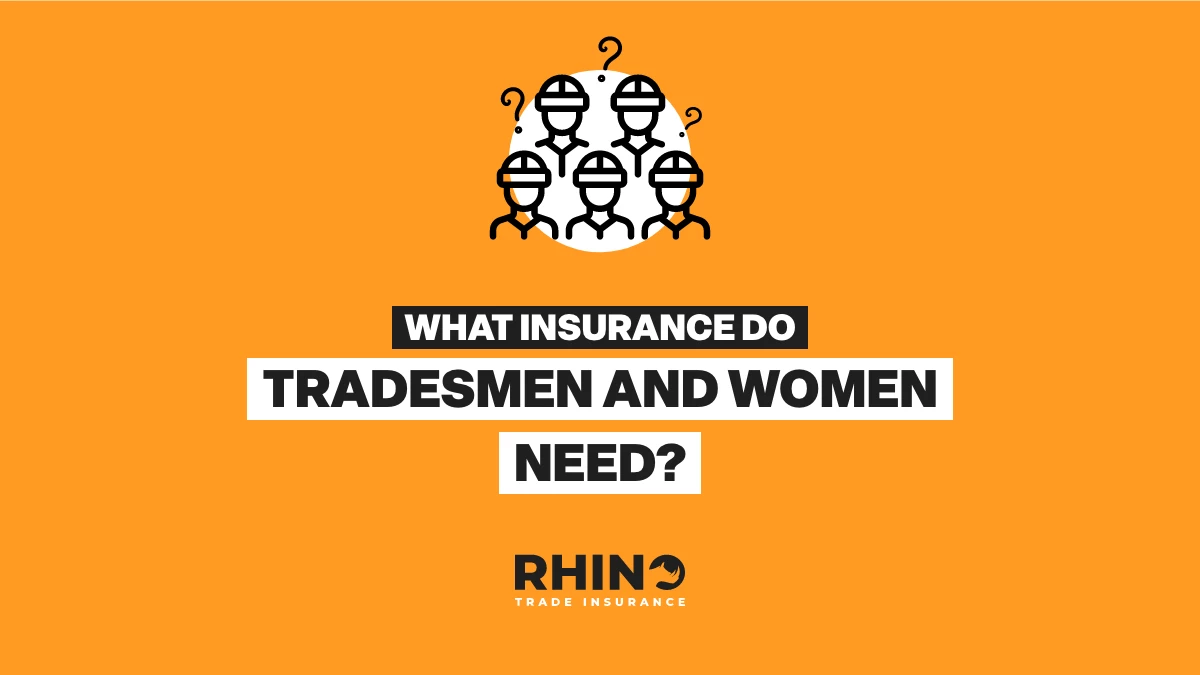
Why Tradespeople Should Consider Tax Enquiry Insurance
Worried about a tax investigation? With HMRC cracking down in 2025, Tax Enquiry Insurance from Rhino gives UK tradespeople expert protection and peace of mind.
Last updated: 27/12/2024
Employers Liability Insurance is a legal requirement for businesses that have more than one worker. There are some exemptions from the rule, but there are strict penalties if you need the cover and you don’t have it in place, so it is vital that you know where you stand.
This article will break down the importance of Employers Liability Insurance and help you to understand if you require this cover.
With the passing of the Employers Liability Act in 1969, it became the law in the UK for all employers to hold at least £5 million in Employer’s Liability Insurance. It’s what’s known as compulsory insurance.
Employer’s Liability Insurance is a type of policy which offers employers protection against workplace claims.
The policy will help an employer deal with the potential costs of compensation claims made by their employees. These claims could arise from injury or illness caused by the work carried out or the working environment. For example, hand and arm vibration (HAV) injuries can be caused by using certain power tools while on the job – and the employer is liable if they do not offer the correct protections against harm and an incident occurs.
Claims from employees against their employers are relatively common, especially in the trades. From plumbing to electrics, construction to bricklaying, trade work comes with a huge number of risks, such as broken bones, severe illnesses, or even accidental death. If something happens to an employee while they’re working, it’s often the employer who must compensate them financially for the harm done.
However, should an employer be covered by Employer’s Liability Insurance, they are protected from potential claims made by their employees up to their chosen level of cover. This means the employer wouldn’t have to pay the cost themselves, which can become a large payout depending on the level of injury or illness that the employee experiences.
Most employers are required to insure against liability for injuries or illnesses to their employees that are a result of their employment. Businesses must hold at least £5 million of cover under this insurance.
It's important to note that, under the Employers Liability Act 1969, “employees” are defined as:
There are exceptions to the rule, and some employers are exempt from needing Employers Liability Insurance if:
As we mentioned, it’s a legal requirement for most businesses to have Employer’s Liability Insurance in the UK. There can be financial repercussions, and potential penalties if you do not have this cover in place.
You can be fined for non-compliance, and it’s not a small sum either. For every day you’re without Employer’s Liability Insurance, HMRC can fine you up to £2,500. You could also be fined £1,000 if you aren’t correctly displaying your certificate, or you can’t find it if an inspector or employee asks to see it. A digital copy is fine, but it needs to be stored somewhere your staff can easily locate and view it.
Being a tradesperson exposes you to a many potential risks, and the scope for things to go wrong for your employees is almost endless. Here are some common reasons for an employee to make a claim against their employer:
Financial
Working without insurance can have a huge negative impact on a business' finances.
Regardless of the insurance status, business owners are likely to find themselves subject to legal disputes and claims brought against their business throughout their time as a business owner. Add into that the high-risk nature of working in the trades, and going uninsured becomes less appealing the more you look at it.
Business owners can face claims made by customers, members of the public, and their own employees. Claims from third parties would be covered by a robust Public Liability Insurance policy, and claims made against the business from employees are protected under Employer’s Liability Insurance. Without such policies, businesses themselves are liable to pay the bill.
Stress
It'll come as little surprise that being uncertain about your insurance status can be stressful. Constantly fretting about what would happen if your business were to be inspected, or worse - an employee is hurt and makes a claim against your business - can take an emotional toll. Work is busy and stressful enough without the additional hassle of potentially being under insured, particularly when it's easily sorted by giving Rhino a call.
Reputation
Working as an uninsured tradesperson can significantly harm your business’s reputation. Potential customers may steer clear of your services, fearing they could be left covering costs if something goes wrong. In the competitive world of the trades, reputation is king – a positive one can open doors to more work, while a poor one can close them.
Failing to have essential coverage, such as Employer’s Liability Insurance, not only risks compliance issues but also undermines trust with clients. Skipping mandatory insurance is a quick way to damage relationships with potential customers and stall your business growth.
If you’re already an employer, you may have accidentally allowed a previous Employer’s Liability Insurance policy to lapse. If you’re not sure whether you’re currently protected by Employer’s Liability Insurance, the first thing you should do is dig out your previous policy documents to make sure they’re up to date. Don’t delay, as every day you go unprotected as an employer can see you fined up to £2,500.
If you’re not an employer yet and are planning on hiring staff soon, you should also act fast. You should have it in place when you onboard your first employee (remember, this includes apprentices and temp staff).
Luckily, you’re in the right place to sort your Employer’s Liability Insurance in just a few steps with Rhino. We are specialist insurance experts for tradespeople, and our dedicated team will get you up and running with your new Employer’s Liability Insurance Policy in next to no time. We offer £10 million of cover under this insurance policy, so you can rest assured that you’re compliant with your legal obligations and that you’d be covered for any issues that crop up.
With Rhino, you can purchase our outstanding Employer’s Liability Insurance as an add-on to our hugely popular Public Liability Insurance – another essential policy for tradespeople.
We love to talk – give us a call today on 0116 243 7904.
Worried about a tax investigation? With HMRC cracking down in 2025, Tax Enquiry Insurance from Rhino gives UK tradespeople expert protection and peace of mind.
Rhino Trade Insurance CEO Troy Stevens joins industry leaders at the House of Commons to discuss the rising issue of tool theft—highlighting its impact on UK tradespeople and the importance of awareness and protection.
It’s easy to become overwhelmed by the complexities of insurance. Fortunately, we’ve broken down exactly what tradespeople need to stay protected on the job.
Tell us your trade and get a tailored insurance quote for your business in seconds
Our team of experts are available to talk to Mon-Fri 08.30-17.30 and Sat 10.00-14.00

